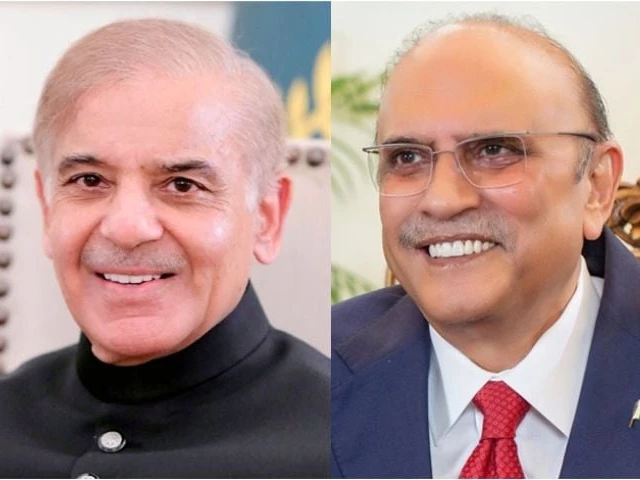President Asif Ali Zardari and Prime Minister Muhammad Shehbaz Sharif extended cordial congratulations to the Saudi leadership and its people on the occasion of Saudi National Day and praised the deep and lasting bond between the two nations, Tuesday.
President Zardari highlighted the spiritual connection that was elaborated by the presence of the two holiest places of Islam in the kingdom. He also noted that the partnership in defense and security is an important step towards regional peace.
PM Shehbaz confirmed that the historical ties of mutual trust and fraternity will always remain strong.
This mood was formally cemented into a landmark ‘Strategic Mutual Defense Agreement (SMDA)’ Signed on September 17, 2025 at Al Yamamah Palace in Riyadh.
The agreement aims to “strengthen joint deterrence against any aggression” that says an attack on both country will be considered an attack on both. This is formalizing a defense relationship that has been decades in creation.
Read: Pak-Saudi Defense Pact: An old fraternity is reworked at a dangerous age
The pact is the culmination of a partnership that began with a 1951 Treaty of Friendship. Since the 1970s, Pakistani soldiers have been stationed in Saudi Arabia for the Holy Duty to protect the Holy Places.
Collaboration has included the training of Saudi military staff in Pakistani institutions, joint exercises and Pakistani support in key moments, such as the al-Wadiah war in 1969.
The recent agreement is seen as a strategic response to a changed regional security landscape. Analysts suggest that recent instability and the perceived threats from an assertive Israel have created an urgent character for such a formal NATO-style event.
Read more: Pakistan, KSA Sign Defense PACT
The pact integrates Pakistan’s military capacity with Saudi -Arabia’s diplomatic and economic strength, creating a significant stabilizing strength in the region.
While specific operational details remain confidential, the agreement is expected to involve improved cooperation in education, defense production and strategic planning.
ALSO READ: Riyadh expects Delhi to understand the kingdom’s security needs
The agreement is a defensive framework that ensures both nations’ national interests and promises a new era with collective security and deeper bilateral ties.



